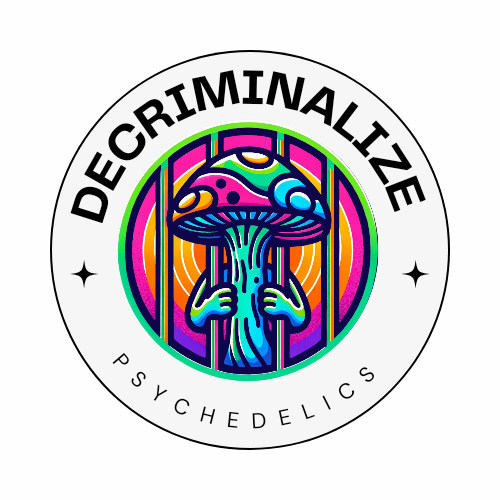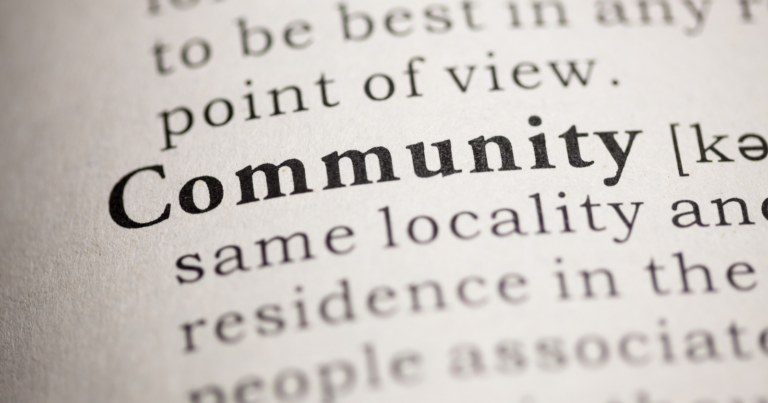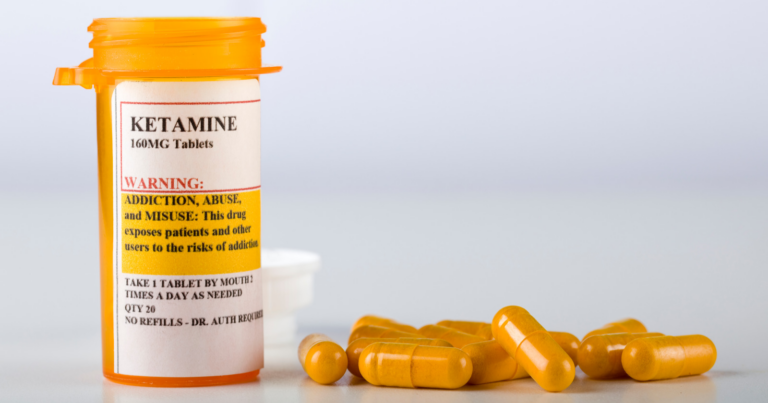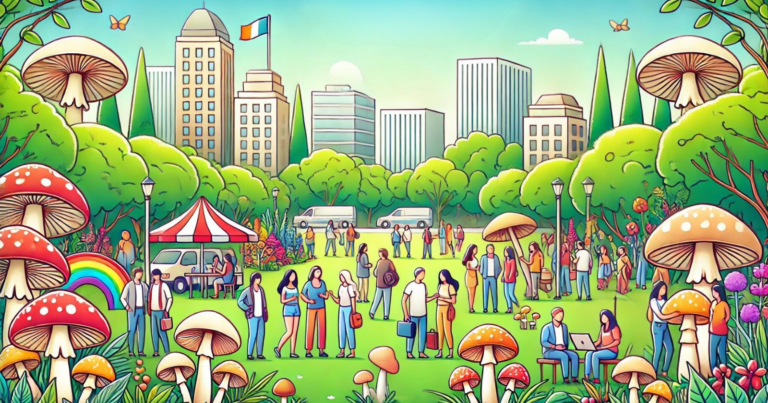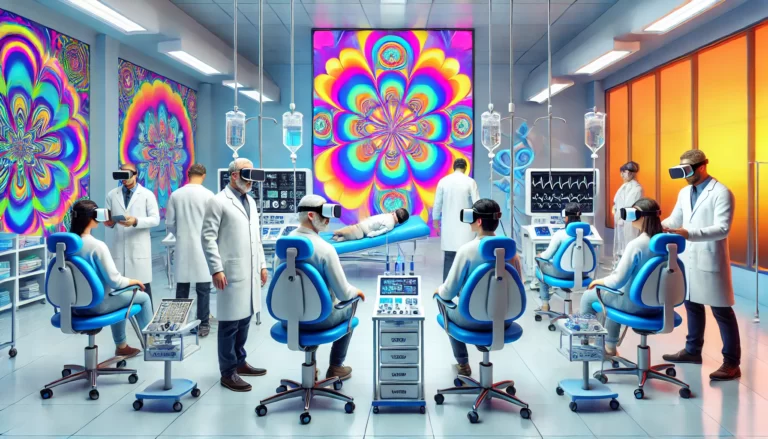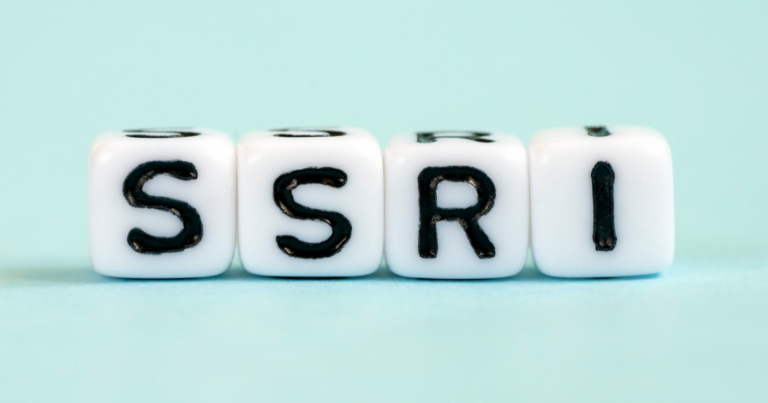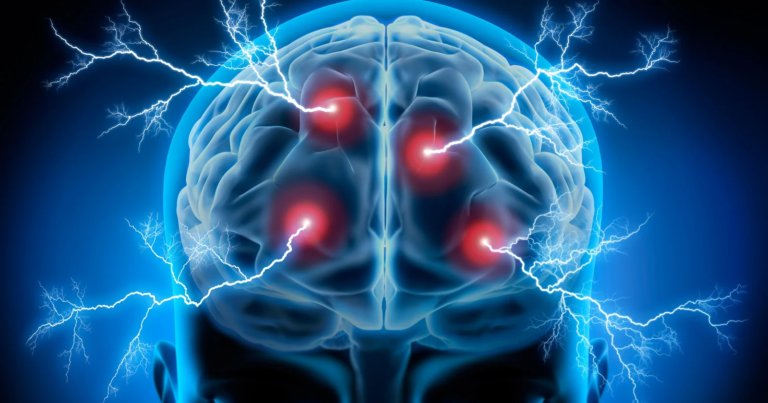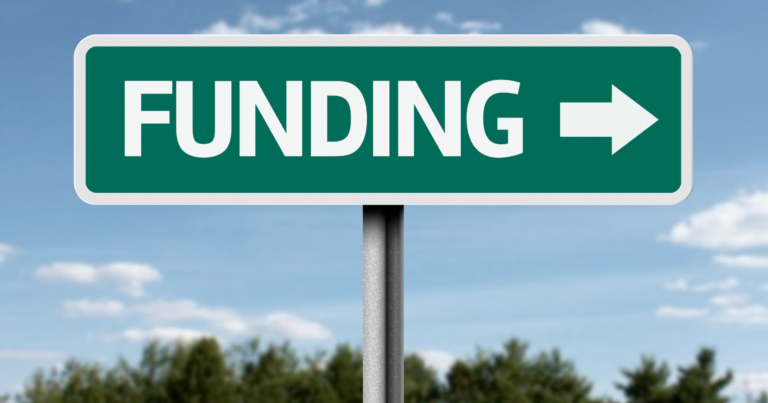Legalizing psychedelics for therapeutic use may seem like a radical idea.
It’s not just about counterculture or mind-expanding experiences, it’s about economics, too.
The difference comes down to understanding. Many folks view psychedelics with suspicion, clouded by misconceptions and fear.
But what if we adjusted our lenses?
Legalizing psychedelics for therapeutic use has potential economic benefits that are hard to ignore. And those in the know realize there are key points that can help shift the perspective from taboo to profitable.
Let’s explore seven economic benefits that could emerge from legalizing psychedelics for therapeutic use.
1) Boosting the Healthcare Industry
The legalization of psychedelics for therapeutic use presents a significant opportunity for the healthcare industry.
Picture this: a new range of treatments for mental health disorders that current drugs can’t effectively manage.
The effects are two-fold.
First, patients struggling with conditions such as depression, PTSD, or addiction could potentially find effective relief from psychedelic therapy. This means fewer hospital visits, less time off work, and overall improved quality of life.
Second, the introduction of psychedelic therapy can stimulate increased research and development in the healthcare sector. It could inspire the birth of new companies, job creation, and more investment in mental health innovation.
This isn’t just speculation. Early studies have already shown promising results with psychedelics in a therapeutic setting.
Legalizing these substances could be the catalyst to a healthcare revolution, with significant economic benefits attached.
But remember, we’re advocating for responsible use under professional guidance – not recreational misuse.
2) Job Creation and Economic Growth
Now let’s move into the realm of economic growth and job creation.
When I think about the potential of psychedelics being legalized for therapeutic use, I can’t help but see the parallels with another industry: the cannabis industry.
I still remember when states first started to legalize cannabis for medicinal purposes. There was a lot of uncertainty, but also a lot of opportunity.
New businesses sprung up – dispensaries, cultivation facilities, testing labs.
It wasn’t just jobs directly in the cannabis industry either. There was increased demand for lawyers specializing in cannabis law, consultants to help navigate the newly formed industry, and marketers to help these new businesses stand out.
And guess what? All these jobs meant more tax revenue.
The same could happen with psychedelics. If they’re legalized for therapeutic use, we could see a similar surge in job creation and economic growth.
It’s not just a theory, I’ve seen it happen before with cannabis. Now imagine that happening again, but this time with psychedelics.
3) Reduction in Law Enforcement and Judicial Costs
The war on drugs has been an expensive endeavor.
In the United States alone, it’s estimated that over one trillion dollars have been spent on it since its inception in the 1970s.
Now imagine if a portion of those resources were redirected. Legalizing psychedelics for therapeutic use could potentially save a significant amount of money in law enforcement and judicial costs.
When substances are illegal, a lot of police time, court time, and prison space are dedicated to related offenses.
If psychedelics were legalized for therapeutic use, these resources could be reallocated to tackle other pressing problems.
This is not just about saving money – it’s also about better resource allocation and potentially improving the effectiveness of our law enforcement and judicial systems.
4) Creation of a New Tax Revenue Stream
It’s no secret that governments are always looking for ways to increase their revenue, and legalizing psychedelics for therapeutic use could provide just that.
Consider the potential for a new tax revenue stream similar to what we’ve seen with the legalization of cannabis in some parts of the world. In Colorado, for instance, cannabis taxes have exceeded $1 billion since its legalization.
The same could happen with psychedelics.
Legalization would mean regulation, and regulation often comes with taxation. This new source of income could be used to fund public services, education, healthcare, and more.
The economic benefits of a new tax revenue stream cannot be understated. It’s an opportunity to bolster public funds and invest in our communities.
5) Fostering Innovation and Entrepreneurship
I’ve always been passionate about entrepreneurship and innovation. There’s something exhilarating about cultivating an idea and turning it into a reality.
Legalizing psychedelics for therapeutic use could be a game-changer for budding entrepreneurs. It opens up a new field ripe for innovation and exploration.
Just take a moment and think about the possibilities – new therapy centers, training programs for therapists, development of new psychedelic substances, and even technology platforms for remote therapy sessions.
From my own entrepreneurial journey, I know that every new industry brings with it a wave of creativity and innovation. And with this wave comes economic growth and job creation.
Legalizing psychedelics for therapeutic use could be the spark that ignites the next wave of entrepreneurship in the healthcare industry. And I can’t wait to see the amazing ideas that would come to life.
6) Enhancing Tourism and Local Economies
Consider this: people travel the world for various types of wellness retreats, from yoga to meditation to detox programs. Now imagine if psychedelic therapy became a part of this wellness tourism on a mass scale.
Regions that legalize psychedelics for therapeutic use could see a boost in their local economies. Wellness tourists looking for new, innovative treatments could bring in additional revenue to these areas.
Hotels, restaurants, and other local businesses would benefit from the influx of visitors. Not to mention, this could also create jobs in the tourism sector.
In a world where wellness tourism is growing, integrating psychedelic therapy into this sector could have significant economic benefits.
It’s already happening…
7) Encouraging Investment in Research and Development
Perhaps one of the most significant economic benefits of legalizing psychedelics for therapeutic use is the potential boost to research and development.
Unlocking this new frontier could attract substantial investment, both private and public, into researching these substances further.
This could lead to groundbreaking discoveries in mental health treatment, opening up even more avenues for economic growth.
But, increased research could also lead to improved safety and efficacy in psychedelic therapy, ensuring patients receive the best possible care.
In turn, could further fuel the economic benefits of this burgeoning industry.
It’s about Perspective
The discourse around psychedelics and their potential therapeutic use extends far beyond the realm of counterculture and recreational use. As we’ve explored, the economic implications are vast, from job creation and tax revenue to fostering innovation and driving research.
Legalizing psychedelics for therapeutic use could represent a significant shift in our approach to mental health treatment.
And with this shift could come substantial economic growth.
Perhaps it’s time we view these substances not as taboos, but as untapped potential. Potential for healing, for economic development, and for societal progress.
Psychedelics might not be the panacea for all our economic challenges or mental health issues.
But, they could be a part of a broader solution, a piece of the puzzle that we’ve been overlooking for too long.
As we move forward, let’s continue the conversation, continue the research, and keep our minds open to the possibilities.
After all, societal progress is often born out of challenging established norms and exploring new frontiers.
